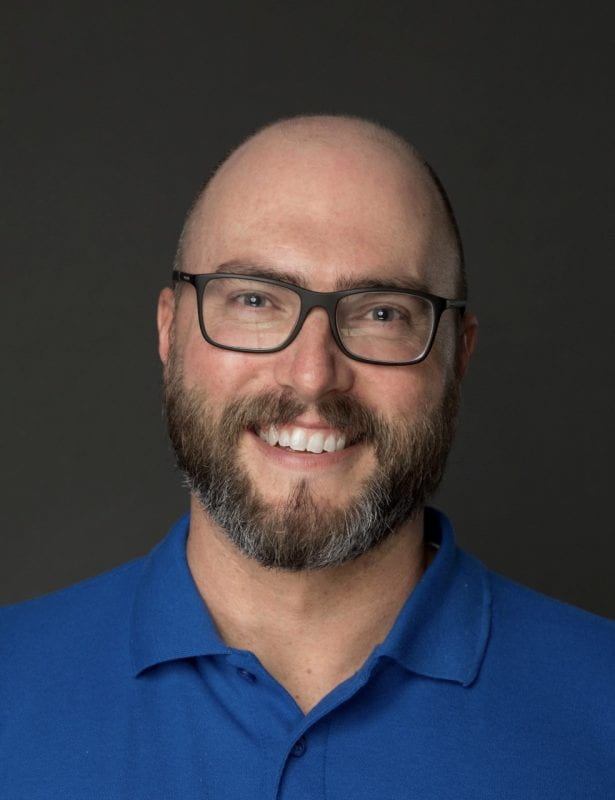Research Accomplishments from across NSU (Apr. 2022)

Find below a selection of recent research accomplishments by investigators from across NSU colleges.
From the H. Wayne Huizenga College of Business and Entrepreneurship:
Nova Southeastern University professors conducted a landmark study on drug overdoses and ER visits in Florida during COVID-19 and found unexpected results regarding disparities by age, ethnicity, and insurance status. Investigators include Dr. Timothy Page, Dr. Julie Jacko, Dr. Francois Sainfort, and Dr. Weiwei Chen. Their study of disparities in drug overdoses during COVID-19 was the first research of its kind in the state of Florida. More details on the study here and in this SharkBytes article.

From the College of Psychology:

Dr. Travis Craddock, Ph.D. and colleagues recently published an article titled “The impact of post-traumatic stress on quality of life and fatigue in women with Gulf War Illness”. Authors included two alumni from the college, a biology student, faculty from the College of Psychology and Institute for Neuro-Immune Medicine (KPCOM), and one from the Miami VA Medical Center. This publication assesses the differences in measures of fatigue and quality of life experienced by women with Gulf War Illness (GWI) in the presence and absence of Post-traumatic stress disorder (PTSD) symptoms. Read more: https://bmcpsychology.biomedcentral.com/articles/10.1186/s40359-022-00752-5

Amidst efforts to address changing population-based averages in body mass index over the past four decades, the field of eating disorders has grown increasingly concerned over anti-fat messaging. Dr. Janell Mensinger, a new faculty member of the NSU College of Psychology, recently examined this issue by leading a study funded by a grant from Discovery Behavioral Health, one of the country’s largest eating disorder treatment providers. It was the first examination of the relationship between eating disorder symptom onset and reports of anti-fat messaging among nearly 3000 individuals in eating disorder treatment. The paper was published in Psychosomatic Medicine and is available at https://doi.org/10.1097/PSY.0000000000000962. She was subsequently interviewed by a journalist from the Philadelphia Inquirer to discuss the implications of the article’s findings and why “the war on obesity” has backfired (see https://tinyurl.com/36c5rbs2).

Dr. Jonathan Banks recently published a paper with Matthew Welhaf (former M.S. student in his lab and current PhD student at University of North Carolina at Greensboro) examining the role of attention control and working memory in regulating emotionally valenced mind wandering titled “Individual differences in dimensions of mind wandering: The mediating role of emotional valence and intentionality” (doi: s00426-021-01579-2). https://link.springer.com/content/pdf/10.1007/s00426-021-01579-2.pdf


 Dr. Vincent Van Hasselt, Dr. Ryan Black, and Doctoral candidate Angela Beamer have partnered with the Broward Sheriff’s Office and were awarded the NSU Quality of Life Faculty Community-Based Applied Research Grant for a study entitled, “Assessment of Stress and Resilience, and Burnout in Emergency Communications Operators (ECOs).” ECOs are a high-risk first responder group that has unique stressors, which can lead to emotional and physiological effects such as depression, anxiety, posttraumatic stress disorder, high blood pressure, weight gain, weakened immune system, and sleep disturbance. The goal of this grant is to contribute to the literature on ECO stress, resilience, and burnout and to benefit emergency response organizations by providing them with empirical data concerning factors that could alleviate and/or prevent burnout.
Dr. Vincent Van Hasselt, Dr. Ryan Black, and Doctoral candidate Angela Beamer have partnered with the Broward Sheriff’s Office and were awarded the NSU Quality of Life Faculty Community-Based Applied Research Grant for a study entitled, “Assessment of Stress and Resilience, and Burnout in Emergency Communications Operators (ECOs).” ECOs are a high-risk first responder group that has unique stressors, which can lead to emotional and physiological effects such as depression, anxiety, posttraumatic stress disorder, high blood pressure, weight gain, weakened immune system, and sleep disturbance. The goal of this grant is to contribute to the literature on ECO stress, resilience, and burnout and to benefit emergency response organizations by providing them with empirical data concerning factors that could alleviate and/or prevent burnout.
 Dr. Lisa Robison was awarded a 2-year, $154,000 American Heart Association Institutional Research Enhancement Award (AIREA) to fund the project, “Targeting the Renin-Angiotensin System to Ameliorate Cerebral Amyloid Angiopathy”. Cerebral amyloid angiopathy (CAA) is the buildup of toxic proteins around blood vessels in the brain, increasing the risk of dementia and stroke. There are currently no known treatments for CAA.
Dr. Lisa Robison was awarded a 2-year, $154,000 American Heart Association Institutional Research Enhancement Award (AIREA) to fund the project, “Targeting the Renin-Angiotensin System to Ameliorate Cerebral Amyloid Angiopathy”. Cerebral amyloid angiopathy (CAA) is the buildup of toxic proteins around blood vessels in the brain, increasing the risk of dementia and stroke. There are currently no known treatments for CAA.
The goal of this work is to determine whether drugs that target the brain’s renin-angiotensin system may be effective against CAA. Similar drugs are commonly used to treat hypertension and heart disease. In the proposed study, a mouse model for CAA will be treated with two different drugs, starting at very early-stage disease (prevention) or mid-stage disease (treatment). If successful, this project will help identify new potential treatments for CAA, reducing the burden of dementia and stroke plaguing the world’s growing aging population.
From the Halmos College of Arts & Sciences:

 Drs. Dimitri Giarikos and Amy Hirons recently published two articles (in press) regarding contaminants in Peruvian pinnipeds and fur seals. This work is supported by the Chicago Board of Trades and St. Louis Zoo WildCare Institute, with additional support from an NSU PFRDG award.
Drs. Dimitri Giarikos and Amy Hirons recently published two articles (in press) regarding contaminants in Peruvian pinnipeds and fur seals. This work is supported by the Chicago Board of Trades and St. Louis Zoo WildCare Institute, with additional support from an NSU PFRDG award.
- Kooyomjian, C., Giarikos, D. G., Adkesson, M., and Hirons, A. C. (2022) Evaluation of trace element concentrations in the serum and vibrissae of Peruvian pinnipeds (Arctocephalus Australis and Otaria Byronia). Journal Wildlife Diseases.
- Kooyomjian, C., Giarikos, D. G., Adkesson, M., and Hirons, A. C. (2022) Maternal offloading of arsenic and other trace elements in Peruvian fur seals. Marine Mammal Science.
 Dr. Neil Katz recently co-authored several books chapters that will be available Spring 2022 in the Handbook of Organizational Conflict Management (Yashwant Pathak and LeVena Wilkin, eds. DeGruyter Publ.):
Dr. Neil Katz recently co-authored several books chapters that will be available Spring 2022 in the Handbook of Organizational Conflict Management (Yashwant Pathak and LeVena Wilkin, eds. DeGruyter Publ.):
- “Functions and Benefits of Organizational Ombuds” (with Neal Powless and Gayle Hardison)
- “Utilization of Frames and Reframing for Organizational and Conflict Management Effectiveness” (with Michael A. Wahlgren)
- “Making the Invisible Visible: Uncovering the Mystery of Personality Conflicts at Work”(with Pavel Mischenko and Gayle Hardison)
 Dr. Jose Lopez and colleagues recently published an article titled “Why sequence all eukaryotes?” in PNAS: https://doi.org/10.1073/pnas.2115636118. There they reference The Earth BioGenome Project, which has proposed that the genomes of all extant, named eukaryotes—about 2 million species—should be sequenced to high quality to produce a digital library of life on Earth. In their article they discuss why we should sequence all eukaryotic species as many questions of evolutionary and ecological significance will only be addressable when whole-genome data representing divergences at all of the branchings in the tree of life or all species in natural ecosystems are available. These explorations will resolve long-standing problems in phylogenetics, evolution, ecology, conservation, agriculture, bioindustry, and medicine.
Dr. Jose Lopez and colleagues recently published an article titled “Why sequence all eukaryotes?” in PNAS: https://doi.org/10.1073/pnas.2115636118. There they reference The Earth BioGenome Project, which has proposed that the genomes of all extant, named eukaryotes—about 2 million species—should be sequenced to high quality to produce a digital library of life on Earth. In their article they discuss why we should sequence all eukaryotic species as many questions of evolutionary and ecological significance will only be addressable when whole-genome data representing divergences at all of the branchings in the tree of life or all species in natural ecosystems are available. These explorations will resolve long-standing problems in phylogenetics, evolution, ecology, conservation, agriculture, bioindustry, and medicine.
 Dr. Alex Bordino recently published “Antimodernism and Indigenous Reconstruction: Proto-Ethnographic Attractions in Early Cinema, 1894-1914” in The Journal of American Culture. Available online at: https://onlinelibrary.wiley.com/doi/full/10.1111/jacc.13314
Dr. Alex Bordino recently published “Antimodernism and Indigenous Reconstruction: Proto-Ethnographic Attractions in Early Cinema, 1894-1914” in The Journal of American Culture. Available online at: https://onlinelibrary.wiley.com/doi/full/10.1111/jacc.13314
 Dr. Santanu De and student Stephanie Autore recently published on the “Impacts of COVID-19 on Global Healthcare Management and Research” in the Advanced Journal of Graduate Research. https://doi.org/10.21467/ajgr.11.1.52-60
Dr. Santanu De and student Stephanie Autore recently published on the “Impacts of COVID-19 on Global Healthcare Management and Research” in the Advanced Journal of Graduate Research. https://doi.org/10.21467/ajgr.11.1.52-60
From the Abraham S. Fischler College of Education & School of Criminal Justice:
 Dr. Jennifer Reeves is an Associate Professor and Director of Dissertation Support Services at the Fischler College of Education and School of Criminal Justice. Dr. Reeves’ research interests involve the application of educational psychology to learning in higher education and program evaluation. Currently, Dr. Reeves is the lead evaluator for a recently-awarded NSF IRES Track II grant entitled “Systems-based Transdisciplinary Approaches to Coral Reef Science and Conservation” with Drs. Lauren Nader and Tyler Cyronak from the Halmos College of Arts and Sciences, Department of Marine and Environmental Sciences. In addition to her evaluation work, Dr. Reeves has authored/co-authored 6 peer reviewed journal articles over the last 2 years (more info here).
Dr. Jennifer Reeves is an Associate Professor and Director of Dissertation Support Services at the Fischler College of Education and School of Criminal Justice. Dr. Reeves’ research interests involve the application of educational psychology to learning in higher education and program evaluation. Currently, Dr. Reeves is the lead evaluator for a recently-awarded NSF IRES Track II grant entitled “Systems-based Transdisciplinary Approaches to Coral Reef Science and Conservation” with Drs. Lauren Nader and Tyler Cyronak from the Halmos College of Arts and Sciences, Department of Marine and Environmental Sciences. In addition to her evaluation work, Dr. Reeves has authored/co-authored 6 peer reviewed journal articles over the last 2 years (more info here).
 Dr. Jennifer Allen is a professor in the School of Criminal Justice. Dr. Allen has a long history of scholarly work in the field of criminal justice. Over the past 2 years, Dr. Allen has served as lead author on 5 books in the field of criminal justice, ranging from administration and management of criminal justice systems to research methods and statistics for criminal justice research. Dr. Allen’s most recent work is the 4th edition of her book entitled Administration and Management in Criminal Justice: A Service Quality Approach, due out this spring and published by Sage. Dr. Allen’s scholarly work is widely acknowledged in the field and has allowed her to be viewed prominently among her peers. (More info on this work here.)
Dr. Jennifer Allen is a professor in the School of Criminal Justice. Dr. Allen has a long history of scholarly work in the field of criminal justice. Over the past 2 years, Dr. Allen has served as lead author on 5 books in the field of criminal justice, ranging from administration and management of criminal justice systems to research methods and statistics for criminal justice research. Dr. Allen’s most recent work is the 4th edition of her book entitled Administration and Management in Criminal Justice: A Service Quality Approach, due out this spring and published by Sage. Dr. Allen’s scholarly work is widely acknowledged in the field and has allowed her to be viewed prominently among her peers. (More info on this work here.)
From the College of Pharmacy:

Dr. Dmitriy Minond has been awarded a grant from the Florida Department of Health entitled ‘Spliceosomal modulation for regulation of melanoma immunogenicity.’ Melanoma affects nearly 1 million people living in the US according to the National Cancer Institute. In Florida, approximately 700 people die from melanoma and more than 7000 new cases are diagnosed annually, and treatment is a top research priority in the state. Despite recent advances in melanoma drug discovery, the survival rate of patients with late-stage metastatic melanoma is about 3 years and there is a need for new approaches and targets for melanoma drug discovery. Dr. Minond’s funded proposal will determine the role of spliceosomal proteins hnRNPH1 and H2 (H1 and H2, 96% homology) in melanoma immunogenicity, which could lead to the novel approaches to therapy. Preliminary findings suggest that small molecule modulation of spliceosome can lead to the increase of melanoma cell immune signaling, which can be beneficial to the patients.